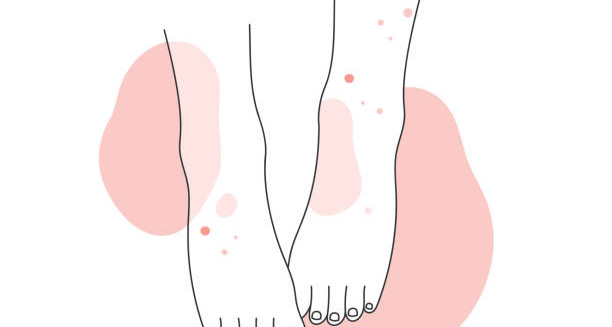Prevention of Henoch-Schönlein Purpura
The prevention of Henoch-Schönlein purpura (HSP) remains a challenge due to the condition’s complex and not fully understood immune mechanisms. As HSP is most often a post-infectious autoimmune response rather than a disease triggered by a single identifiable agent, direct prevention of Henoch-Schönlein purpura is currently not possible in the same way that vaccines can prevent viral infections. However, there are practical strategies for reducing the likelihood of recurrence, minimising known triggers, and promoting early detection and care to prevent complications.
HSP frequently follows upper respiratory tract infections, such as colds or sore throats—particularly those caused by streptococcal bacteria. Although not every viral or bacterial infection leads to HSP, these infections appear to act as common immune triggers, particularly in children. Therefore, one of the most effective preventive strategies may involve reducing the risk of infection through general hygiene measures:
Encouraging regular handwashing, particularly before meals and after contact with communal surfaces or sick individuals
Teaching children not to share drinks, food, or utensils in school and play settings
Ensuring appropriate use of tissues and cough etiquette
Keeping children home from school when they are ill, to prevent further transmission of infection
While these steps cannot guarantee prevention, they help lower the incidence of infections that may precipitate HSP in susceptible individuals. In environments such as schools or daycare centres—where viral illnesses are prevalent—these hygiene protocols can be particularly beneficial.
In cases where a streptococcal infection is confirmed, prompt treatment with antibiotics may reduce the immune response and possibly lower the risk of triggering vasculitis. However, there is no evidence that antibiotic use can prevent HSP specifically. Still, managing infections quickly and completely is good medical practice and may indirectly reduce HSP risk in some cases.
Prevention of Henoch-Schönlein Purpura
For children or adults who have already experienced an episode of HSP, the focus shifts to preventing recurrence and managing long-term health. About one-third of people with HSP—particularly children—experience a recurrence within weeks or months of their initial recovery. These relapses are often milder but can still involve the return of the rash, joint pain, or abdominal discomfort. To reduce the chances of recurrence:
Encourage a healthy immune system through a balanced diet rich in fruits, vegetables, whole grains, lean proteins, and adequate hydration
Promote adequate sleep and stress management, as chronic stress can weaken immune regulation
Avoid unnecessary use of medications that may exacerbate symptoms, particularly NSAIDs (non-steroidal anti-inflammatory drugs) in individuals with known kidney involvement
Be cautious with vaccinations immediately following an acute episode of HSP. Although routine vaccines are safe and essential, timing may be adjusted in consultation with a healthcare provider if the individual is recovering or at high risk of relapse
People with a history of HSP should also be aware of early warning signs of recurrence. These include:
New appearance of the purpuric rash, especially on the lower limbs
Swelling or stiffness in joints
Abdominal pain or gastrointestinal discomfort
Foamy urine, visible blood in urine, or reduced urine output
At the first signs of these symptoms, individuals should consult their GP or paediatrician. Early intervention can minimise discomfort and prevent more serious complications—especially those related to the kidneys.
Although there is no known genetic cause of HSP, some evidence suggests that certain individuals may be more susceptible due to genetic factors that influence their immune system. That said, the condition does not run strongly in families, and the vast majority of siblings and relatives are unaffected. Thus, there are no formal genetic screening tools or preventive therapies based on family history alone.
Prevention of Henoch-Schönlein Purpura
For children or adults who have suffered from significant renal involvement during their initial episode, more intensive long-term prevention measures may be needed. These include:
Routine urinalysis (even months after symptoms resolve) to monitor for protein or blood in the urine
Regular blood pressure monitoring, as hypertension may develop insidiously
Avoiding medications that can stress the kidneys, such as certain painkillers, herbal supplements, or contrast dyes used in imaging procedures
Staying well-hydrated, especially during illness or hot weather, to support kidney function
For those under the care of a nephrologist, follow-up appointments are crucial. These may include urine protein-to-creatinine ratio tests, blood tests for kidney function (e.g., creatinine, eGFR), and sometimes imaging of the kidneys. If there are signs of ongoing kidney inflammation, doctors may consider low-dose maintenance therapies, such as corticosteroids or immunosuppressants, to prevent progression.
In rare adult cases where HSP occurs alongside another autoimmune disorder—such as lupus or inflammatory bowel disease—managing the underlying condition may reduce the chance of triggering vasculitic flare-ups. Rheumatologists or immunologists may be involved in the broader care plan, particularly if symptoms are atypical, prolonged, or severe.
Education also plays an essential role in prevention. Schools, caregivers, and patients should be made aware that:
HSP is not contagious
Recurrence is possible, but usually milder
Most children recover completely with no lasting damage
Early action at the first sign of relapse can prevent complications
Where possible, patients and families should receive written discharge advice following hospital care or diagnosis. This should include information on what to look out for, when to return for check-ups, and how to monitor kidney health at home. In some cases, urine dipsticks may be provided to parents to check for proteinuria or haematuria in the weeks following recovery.
Prevention of Henoch-Schönlein Purpura
In summary, while the prevention of Henoch-Schönlein purpura is not currently possible through a single intervention, several strategies can significantly reduce risk and support early detection. These include infection control, immune system support, careful monitoring after the first episode, and proactive management of early relapse signs. With good hygiene, healthy living, and close follow-up care, most individuals recover fully and avoid further complications.


